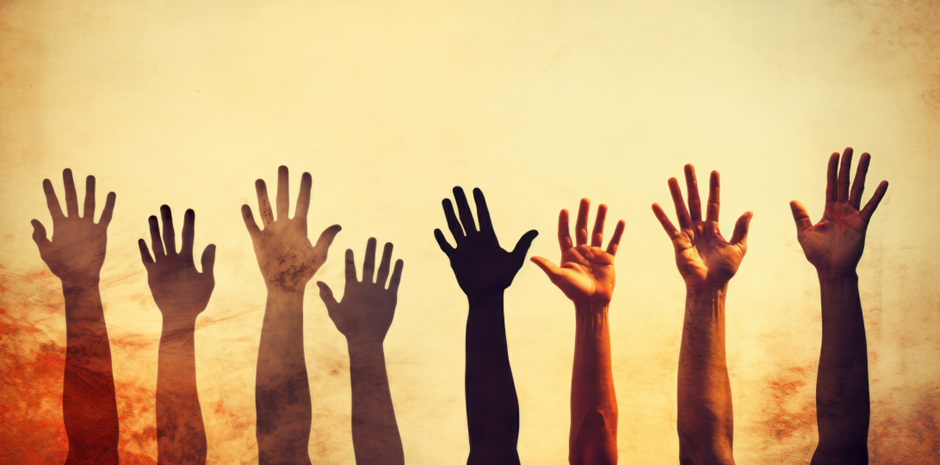Caroline Khene, Research Fellow and Digital Cluster Lead at the Institute of Development Studies and Secretary of IFIP 9.4, reflects on the changing narrative of the ICT4D field, in the light of activity with the Task Force 5 on Inclusive Digital Transformation.
The narrative is changing in our field, with some people questioning whether ICT4D matters, exists, or still has a research agenda. When I started researching in this field as an undergraduate student in South Africa, the term ICT4D was frowned upon in my discipline – as not being part of information systems – “ICT4D is not Information Systems” is what I was often told…how ironic! My research career began in South Africa, at a time when it was difficult to mainstream the concept in our discipline, making it challenging to advocate for it in teaching curriculum and research. Interestingly, although not surprising, I also learned of the challenge ICT4D researchers in the north also experienced, with debates around approaches applied, methodologies, relevance, and its position in information systems and related disciplines. Despite these challenges, supportive networks such as SIGGLOBDev, IFIP 9.4, IDIA, and later the ICTD Conference began to emerge, where research around the field started to gain prominence and open debates around the value of digital technology in addressing pressing issues in international development. The growth and interest of ‘digital’ in international development, later resulted in questions around, ‘whose design, whose innovation, whose decision, whose perspective of impact’, as several issues emerged around sustainability/continuity of digital programmes, digital ethics and rights, data justice, surveillance capitalism – just to name a few. Furthermore, as Low-Middle-Income-Countries (LMICs) are continuously targeted for investment by global powers from the US, Europe and China, this puts into question top-down approaches, with no realistic-inclusive-representative deliberation in place around how digitalisation should unfold within their context. Techno-feudalism is now at bay, placing LMICs in problematic positions of behavioural-cultural lockdown, to not claim the cultures and histories that should shape digital innovation in their context.
“We need to be more critical”. Taking a critical approach is not new to the ICT4D field, with several researchers embracing critical theory, paradigms, and philosophical approaches in how one ‘does’ research. This has been a valuable realisation in our research community, as researchers become more ‘aware’ of their influence, and inserts of power that manifest in digital development research and initiatives. I attended the IFIP WG 8.2 and WG 9.4 Joint Working Group Conference, in Hyderabad, India, in December 2023. The conference theme, as a legacy to the late Bruno Latour and his work, centered on globalisation, inequity, and climate change. The emergent discussions at the conference converged around deliberative power in different ways, and what it should mean in relation to ‘how’ power transitions should occur in south contexts. Keynotes by Janaki Srinavasan and Bobby Banerjee touched on the place of history and politics in researching the information age, and political ontologies of sustainability in decolonising climate change. A different kind of ‘critical’ continues to gain prominence, which should not only rest in interpretations of the researcher, but critical that is emancipatory for the ‘researched’ to collaboratively become the ‘researcher’, in democratic processes of embedding and driving local ontologies.
So ICT4D – does it have an agenda, has it disappeared? No it hasn’t – it has just become integrated into different discussions shaping the digital economy. Our field applies not only to LMIC but globally in varied contexts, including that of high-income countries – something I have seen and experienced moving from South Africa to the UK. What needs to be encouraged is the participation of new voices and ontologies in global spaces of influence, like the G20 intergovernmental forum comprising of 20 sovereign countries shaping agendas for the global economy. The T20 exists as an engagement group that produces, discusses, consolidates and presents ideas to the G20 for addressing emerging global challenges. Its members are local and international representatives of think tanks and research institutions, facilitating the contribution of emergent ideas through policy briefs. This year, Brazil holds the presidency for the G20, with the T20 consisting of 6 Task Forces:
- TF01: Fighting inequalities, poverty, and hunger.
- TF02: Sustainable climate action and inclusive just energy transitions.
- TF03: Reforming the international financial architecture.
- TF04: Trade and investment for sustainable and inclusive growth.
- TF05: Inclusive digital transformation.
- TF06: Strengthening multilateralism and global governance.

I am pleased to be member of Task Force 5 on Inclusive Digital Transformation, which consists of 6 significant focus areas:
- Digital Inclusion and Meaningful Universal Connectivity
- Digital Transformation and Platformization of Public Services
- Digital Integrity, Data Protection, and Cybersecurity
- New Digital Technologies for SDGs and Decent Work
- Challenges, Opportunities, and Governance of Artificial Intelligence
- Global Digital Governance and Regulation of Digital Platforms
Each focus area resonates with research previously developed and continuing in the field of ICT4D or digital development. The T20 currently has an open Call for Policy Brief Abstracts, with a deadline of 5 February 2024. I would like to encourage scholars and researchers globally, to contribute policy briefs shaping ideas for addressing global development challenges. Contributors are encouraged to collaborate with other think tanks or research institutions from at least 2 different countries (at least one country should be a G20 member). As the next G20 Presidency will move to South Africa next year, we also particularly encourage submissions from the African continent.
This year, I am also honoured to have been appointed as secretary for IFIP 9.4, supporting our new Chair Dr Silvia Masiero. My hope is to enable wider collaboration and sharing of insights from working group members and invited contributors, contributing to present and future research agendas and debates shaping and evolving our field. Silvia started this amazing blog, and I hope to continue her great work and enthusiasm in sharing knowledge and fostering new collaborations.
